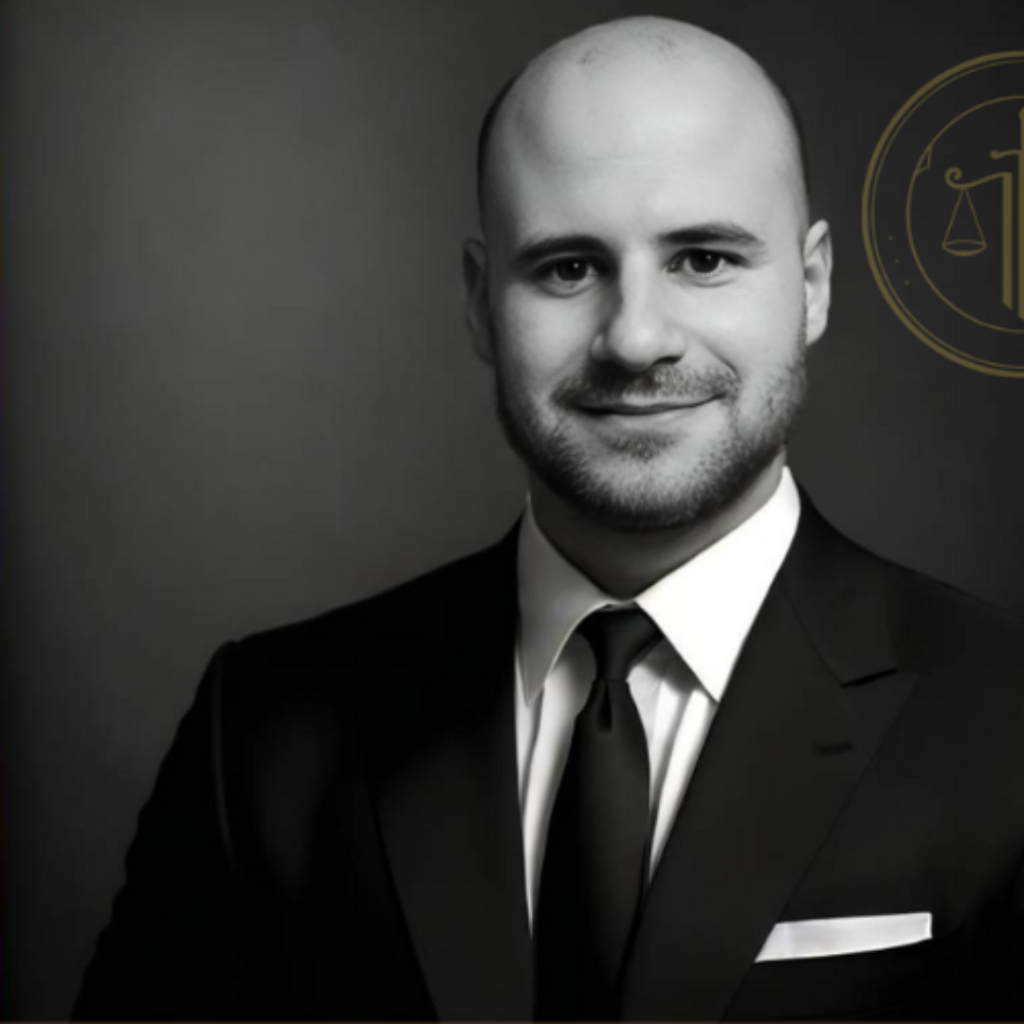Navigating the Labyrinth of Campaign Fund Transfers

Introduction: The Money Trail in American Politics
Few topics spark as much debate, confusion, and intrigue in the grand theater of American democracy as campaign finance. The behind-the-scenes machinery that powers political campaigns influences policy decisions and shapes the fabric of our electoral process. Whether you’re a seasoned political operative, an aspiring candidate, or a curious citizen, understanding the intricate web of campaign finance law is crucial to grasping modern politics’s functions.
This comprehensive guide will take you through the complex landscape of campaign finance law. We’ll explore its historical roots, dissect current regulations, and peer into potential future developments. From the Federal Election Campaign Act to the latest Supreme Court rulings, we’ll leave no stone unturned in our quest to demystify this critical aspect of American democracy.
So, fasten your seatbelts and prepare for a deep dive into the world where money and politics intersect. It’s a world of contribution limits and disclosure requirements, PACs and Super PACs, public funding, and private donations. It’s a world that, for better or worse, shapes the political reality we all live in.
1. The Evolution of Campaign Finance Law: From Teddy Roosevelt to Citizens United

Campaign finance law in the United States constantly evolves, and it is marked by landmark legislation and pivotal court decisions. Let’s take a chronological journey through its key milestones:
1907: The Tillman Act becomes the first federal law prohibiting corporations from making direct financial contributions to national political campaigns. This legislation, championed by President Theodore Roosevelt, marks the beginning of federal campaign finance regulation.
1910 and 1911: The Federal Corrupt Practices Act establishes campaign spending limits for House and Senate candidates and requires disclosure of campaign contributions. This act was one of the early federal campaign finance laws that increased transparency and accountability in political campaigns.
1943: The Smith-Connally Act temporarily prohibited labor unions from contributing to federal candidates. The Taft-Hartley Act of 1947 made this restriction permanent.
1971: The Federal Election Campaign Act (FECA) was enacted to consolidate and reform earlier campaign finance laws. It requires full reporting of campaign contributions and expenditures and limits spending for media advertisements.
1974: In the wake of the Watergate scandal, Congress passes significant amendments to FECA. These amendments established the Federal Election Commission (FEC), set strict limits on contributions by individuals, political parties, and PACs, and established an optional public funding system for presidential elections. Major party candidates become eligible for public funding for their campaigns in the general election and the primaries.
More Information
1976: The Supreme Court’s decision in Buckley v. Valeo upholds FECA’s limits on campaign contributions but rules that spending money to influence elections is a form of constitutionally protected free speech. The Court strikes down specific FECA provisions, including limits on campaign spending and independent expenditures.
2002: The Bipartisan Campaign Reform Act (BCRA), also known as McCain-Feingold, becomes law. It bans national political party committees from raising or spending soft money and prohibits using corporate and union treasury funds to pay for “electioneering communications.”
2010: The Supreme Court’s decision in Citizens United v. FEC strikes down BCRA’s restrictions on independent expenditures by corporations and unions, ruling that these restrictions violate the First Amendment. This decision paves the way for the creation of Super PACs.
2014: In McCutcheon v. FEC, the Supreme Court struck down aggregate limits on how much an individual can contribute to candidates, parties, and PACs.
This historical trajectory demonstrates the tension between regulating money’s political influence and protecting free speech rights.
2. The Federal Election Campaign Act: The Cornerstone of Modern Campaign Finance Law

The Federal Election Campaign Act (FECA) of 1971 and its 1974 amendments form the foundation of modern campaign finance law in the United States. Let’s break down its key provisions:
Contribution Limits: FECA established limits on how individuals, political parties, and political action committees (PACs) can contribute to federal candidates and other political committees. These limits are adjusted for inflation every election cycle.
Disclosure Requirements: The Act mandates comprehensive reporting of campaign contributions and expenditures. Candidates, parties, and political committees must file regular reports with the Federal Election Commission (FEC) detailing their financial activities.
Creation of the FEC: The 1974 amendments established the Federal Election Commission as an independent regulatory agency to enforce federal campaign finance law, disclose campaign finance information, and oversee the public funding of presidential elections. The FEC also regulates campaign funds, including permissible expenses such as travel, meals, legal fees, and community service projects, while ensuring funds are not used for personal purposes.
Public Funding for Presidential Elections: FECA created a voluntary public funding system for presidential primary and general election campaigns. Candidates who opt in receive public funds in exchange for agreeing to limit their spending.
Restrictions on Corporate and Union Contributions: The Act reinforced existing bans on direct corporate and labor union contributions to federal candidates and political parties.
FECA’s impact on American politics has been profound. It brought unprecedented transparency to campaign financing and attempted to level the playing field by limiting the influence of wealthy donors. However, subsequent court decisions, particularly Buckley v. Valeo, have reshaped aspects of the law, striking down certain spending limits as unconstitutional restrictions on free speech.
Did you know that the 1974 FECA amendments were passed in direct response to the Watergate scandal, which exposed significant campaign finance abuses?
3. The Federal Election Commission: Watchdog of Campaign Finance
The Federal Election Commission (FEC) plays a crucial role in enforcing and interpreting federal campaign finance law. Let’s examine its structure, responsibilities, and challenges:
Structure: The FEC comprises six commissioners, no more than three of whom may be members of the same political party. This structure is designed to ensure bipartisan decision-making.
Key Responsibilities:
- Disclosure: The FEC receives and makes public reports of campaign contributions and expenditures.
- Enforcement: It investigates campaign finance law violations and can impose civil penalties.
- Regulation: The Commission issues rules to implement federal campaign finance law.
- Advisory Opinions: It guides how to comply with the law through advisory opinions.
- Public Funding: The FEC administers the presidential public funding program.
Challenges:
- Gridlock: The Commission’s bipartisan structure can lead to deadlock on contentious issues, particularly in enforcing the law.
- Technological Adaptation: Keeping up with new forms of digital campaigning and online fundraising poses ongoing challenges.
- Resource Constraints: Limited budgets and staff can hinder the FEC’s ability to investigate potential violations quickly.
Despite these challenges, the FEC remains the primary agency ensuring transparency and fairness in federal campaign financing. Its database of campaign finance reports is an invaluable resource for journalists, researchers, and the public.
Case Law Spotlight: FEC v. Ted Cruz for Senate (2022) In this recent case, the Supreme Court struck down an FECA provision that limited the amount of money candidates could raise after an election to repay personal loans they made to their campaigns. The Court ruled that this limitation violated the First Amendment, further loosening campaign finance restrictions.
4. Contribution Limits: Balancing Participation and Influence

Contribution limits are a central feature of federal campaign finance law, designed to prevent corruption or the appearance of corruption. Here’s a breakdown of current limits and their implications:
Individual Contribution Limits (2023-2024 cycle):
- To Candidates: $3,300 per election
- To National Party Committees: $41,300 per year
- To State/District/Local Party Committees: $10,000 combined limit per year
- To PACs: $5,000 per year
Candidates can also use their funds without limits but must report such expenditures to the Federal Election Commission (FEC). The House Rules and the Federal Election Campaign Act (FECA) regulate personal funds use. It can cover specific expenses like travel, legal fees, and events for staff.
PAC Contribution Limits:
- To Candidates: $5,000 per election
- To National Party Committees: $15,000 per year
- To Other PACs: $5,000 per year
Party Committee Contribution Limits:
- To Candidates: $5,000 per election
- To National Party Committees: Unlimited transfers
- To Other Party Committees: Unlimited transfers
These limits prevent any donor from having outsized influence over a candidate or party. However, critics argue that they can be circumvented through various means, such as donating to multiple affiliated committees or making independent expenditures.
It’s important to note that these limits apply per election, with primary and general elections counted separately. This effectively doubles the amount an individual can give to a candidate throughout a campaign cycle.
Did you know? Contribution limits are adjusted for inflation in odd-numbered years, which is why they may seem like unusual numbers.
5. Disclosure Requirements: Shining Light on Political Money
Transparency is a cornerstone of campaign finance law, and disclosure requirements are the primary mechanism for achieving it. Let’s explore what must be disclosed and why it matters:
What Must Be Disclosed:
- Contributions: Political committees must report the name, address, occupation, and employer of any individual who contributes more than $200 in a calendar year.
- Expenditures: Committees must report how they spend their money, including payments to vendors and staff.
- Independent Expenditures: Individuals or groups making independent expenditures over $250 must report them to the FEC.
- Electioneering Communications: Broadcast, cable, or satellite communications that identify a candidate within 60 days of a general election or 30 days of a primary must be reported.
Why Disclosure Matters:
- Informed Electorate: Voters can see who is funding candidates and make more informed decisions.
- Deterring Corruption: The threat of public exposure can prevent quid pro quo corruption.
- Enforcement Tool: Disclosure allows the FEC and watchdog groups to monitor compliance with other campaign finance laws.
- Research: Disclosure data provides valuable information for studying the role of money in politics.
Challenges to Disclosure:
- Privacy Concerns: Some argue that disclosure infringes on donors’ privacy rights.
- Chilling Effect: There’s concern that disclosure might discourage political participation, especially for controversial causes.
- Dark Money: Some groups exploit loopholes to avoid disclosing their donors, leading to calls for stricter disclosure laws.
Case Law Spotlight: Citizens United v. FEC (2010) While this case is famous for allowing unlimited independent expenditures by corporations and unions, it also strongly upheld disclosure requirements. The Court stated, “The First Amendment protects political speech, and disclosure permits citizens and shareholders to react to the speech of corporate entities in a proper way. This transparency enables the electorate to make informed decisions and give proper weight to different speakers and messages.”
6. Political Action Committees (PACs): Pooling Resources for Political Influence
Political Action Committees (PACs) have become ubiquitous in American politics. Let’s delve into their types, functions, and regulations:
Types of PACs:
- Traditional PACs: Can contribute directly to candidates, parties, and other PACs.
- Super PACs: Can raise unlimited sums from corporations, unions, and individuals but cannot contribute directly to candidates or parties.
- Leadership PACs: Formed by politicians to support other candidates and help secure leadership positions.
- Separate Segregated Funds (SSFs): Connected to corporations or labor unions.
Functions of PACs:
- Bundling Contributions: PACs can bundle individual contributions to maximize their impact.
- Independent Expenditures: They can spend unlimited amounts on communications that expressly advocate for or against candidates, as long as they don’t coordinate with campaigns.
- Issue Advocacy: PACs can advocate for influencing public opinion and policy.
Regulations:
- Registration: PACs must register with the FEC once they raise or spend more than $1,000.
- Contribution Limits: Traditional PACs are subject to contribution limits for donations to candidates and parties.
- Disclosure: PACs must regularly report their financial activities to the FEC.
- Coordination: PACs are prohibited from coordinating their independent expenditures with candidates or parties.
The rise of Super PACs following the Citizens United decision has dramatically changed the campaign finance landscape. These entities can raise and spend unlimited sums, often dwarfing the spending of the campaigns they support.
Did you know? The term “PAC” was coined in 1944 when the Congress of Industrial Organizations (CIO) formed the first PAC to raise money for President Franklin D. Roosevelt’s re-election.
7. Corporate and Union Political Activity: Navigating Complex Regulations
The role of corporations and labor unions in campaign finance has been a contentious issue throughout American history. Let’s examine the current state of regulations:
Direct Contributions:
- Corporations and labor unions are prohibited from making direct contributions to federal candidates or parties.
- However, they can establish Separate Segregated Funds (SSFs) or PACs to raise voluntary contributions from employees or members.
Independent Expenditures:
- Following Citizens United, corporations and unions can make unlimited independent expenditures to support or oppose candidates.
- These expenditures must not be coordinated with candidates or parties.
Issue Advocacy:
- Corporations and unions can engage in unlimited issue advocacy as long as it doesn’t expressly advocate for the election or defeat of a specific candidate.
Internal Communications:
- Corporations can communicate with stockholders and executive or administrative personnel on any subject.
- Labor unions can communicate with members and their families on any subject.
Facilitation:
- Corporations and unions are prohibited from using their resources to raise money for candidates or parties, except through SSFs.
Foreign Nationals:
- Foreign nationals and corporations are prohibited from making contributions or expenditures concerning U.S. elections.
These regulations aim to balance the First Amendment rights of corporations and unions and prevent undue influence over the political process. However, the system remains controversial, with ongoing debates about the appropriate role of organizational money in politics.
Case Law Spotlight: FEC v. Massachusetts Citizens for Life, Inc. (1986) This case established that nonprofit corporations formed to promote political ideas, which neither engage in business activities nor accept contributions from business corporations or labor unions, can make independent expenditures to influence federal elections.
8. Public Funding of Presidential Elections: A System in Decline
The public funding system for presidential elections, established by FECA and amended by subsequent legislation, was designed to reduce the influence of private money in presidential campaigns. However, its relevance has diminished in recent years. Let’s explore its key features and current status:
Primary Election Funding:
- Candidates can receive matching funds for the first $250 of each contribution.
- To qualify, candidates must raise $5,000 in 20 states and agree to spending limits.
General Election Funding:
- Major party nominees can receive a grant to cover all campaign expenses if they agree not to raise or spend private funds.
- The grant amount for 2020 would have been approximately $103.7 million.
Party Convention Funding:
- Public funding for party conventions was eliminated in 2014.
Current Status:
- No major party nominee has accepted public funding for the general election since 2008.
- The system is widely considered obsolete due to its spending limits, far below what modern campaigns typically raise and spend.
- This decline in public funding has significantly impacted presidential candidates, forcing them to rely more on private and super-wealthy donors.
Reasons for Decline:
- Spending Limits: The limits are seen as too restrictive in the current high-cost campaign environment.
- Frontloading of Primaries: The compressed primary schedule makes it difficult for candidates to survive on limited public funds.
- Rise of Super PACs: These entities can raise and spend unlimited funds, making public funding less attractive.
Future Prospects:
- Proponents have proposed reforming the system by increasing the matching rate for small donations.
- Some advocate eliminating the system, while others push for a new small-donor matching system.
Did you know? The public funding system is financed through a voluntary checkoff on individual tax returns, where taxpayers can direct $3 of their taxes to the Presidential Election Campaign Fund.
9. Independent Expenditures and Super PACs: The New Wild West of Campaign Finance
Independent expenditures have dominated American elections, particularly since the Citizens United decision. Let’s examine this phenomenon and its implications:
Definition:
- Independent expenditures are payments for communications that expressly advocate the election or defeat of an identified candidate, made without coordination with that candidate or party.
Key Features:
- No Limits: There are no limits on how much can be spent on independent expenditures.
- Any Source: Corporations, unions, and individuals can make independent expenditures.
- Disclosure Required: Independent expenditures must be reported to the FEC.
Super PACs:
- Super PACs are political committees that make only independent expenditures.
- They can accept unlimited contributions from individuals, corporations, and unions.
- Super PACs must report their donors to the FEC.
Impact of Independent Expenditures and Super PACs
- Increased Spending: Independent expenditures have skyrocketed since Citizens United.
- Shift in Strategy: Campaigns often rely on Super PACs for large portions of advertising and voter outreach.
- Donor Concentration: A few wealthy donors can have outsized influence through Super PACs.
- Message Control: Candidates may have less control over campaign messaging due to independent expenditures.
Coordination Rules
- Independent expenditures must not be coordinated with candidates or parties.
- The FEC has detailed rules defining coordination, but enforcement can be challenging.
Criticisms and Concerns
- Circumvention: Some argue that Super PACs effectively circumvent contribution limits.
- Donor Anonymity: Super PACs can accept money from non-disclosing entities, leading to “dark money” concerns.
- Electoral Influence: Debate over whether independent expenditures give wealthy individuals and corporations too much influence.
Case Law Spotlight: SpeechNow.org v. FEC (2010)
Building on Citizens United, this D.C. Circuit Court decision struck down limits on contributions to committees making only independent expenditures, paving the way for Super PACs.
Digital Campaigning and Social Media: New Frontiers
Key Areas
- Digital Advertising: Requires disclaimers about who paid for ads, similar to traditional media.
- Social Media Campaigns: Increasingly used for fundraising and voter outreach.
- Microtargeting: Raises privacy concerns and questions about campaign message transparency.
- Foreign Interference: Led to calls for stricter regulations on digital platforms.
- Cryptocurrency Donations: Allowed but presents challenges for transparency and valuation.
- Influencer Marketing: These may be considered independent expenditures if not coordinated with campaigns.
Challenges for Regulators
- Rapid Technological Change: Regulations struggle to keep pace.
- Jurisdictional Issues: Unclear whether federal or state laws apply to digital campaigning.
- Platform Policies: Social media platforms sometimes implement policies beyond legal requirements.
Did you know? In the 2020 election cycle, digital ad spending surpassed traditional TV ad spending for the first time in a presidential election year.
State and Local Campaign Finance Laws
Variation in State Laws
- Contribution Limits: Range from no limits to lower than federal law.
- Public Financing: Offered by several states and cities.
- Disclosure Thresholds: Vary widely across states.
Key Areas of State Regulation
- Corporate Contributions: Some states allow, others prohibit.
- Union Contributions: Regulations vary by state.
- PAC Regulations: Different rules for formation and operation.
- Coordination: Varying definitions of prohibited coordination.
Other Aspects
- Local Innovations: For example, democracy vouchers in Seattle and ranked-choice voting with public financing in NYC.
- Preemption Issues: Ongoing debate about federal law preemption of state regulations.
- Enforcement: Varies in resources and authority across states.
- Ballot Measures: Many states have specific regulations for these campaigns.
Case Law Spotlight: Arizona Free Enterprise Club’s Freedom Club PAC v. Bennett (2011)
The Supreme Court struck down a provision providing additional funds to publicly financed candidates facing high-spending opponents or independent expenditures.
The Future of Campaign Finance: Trends and Potential Reforms
Emerging Trends
- Increased Small-Dollar Donations: Facilitated by online platforms.
- Cryptocurrency in Politics: Likely to grow in importance.
- Artificial Intelligence: Could revolutionize voter targeting and resource allocation.
Proposed Reforms
- Constitutional Amendment: To overturn Citizens United.
- Expanded Public Financing: Matching small donations with public funds.
- Stricter Disclosure Laws: To close “dark money” loopholes.
- Stronger Coordination Rules: Between campaigns and outside groups.
- Restricting Foreign Influence: New regulations on digital platforms.
Challenges to Reform
- Constitutional Constraints: First Amendment interpretation limits some regulations.
- Partisan Gridlock: Lack of bipartisan consensus on reforms.
- Technological Advancements: Can quickly outpace new regulations.
Potential Long-Term Shifts
- Interest in systemic reforms like ranked-choice voting or multi-member districts.
- The possible shift towards transparency-focused regulations over contribution limits.
Did you know? Several states have passed resolutions calling for a constitutional amendment to overturn Citizens United.
Conclusion: The Ongoing Balance of Democracy and Dollars
The intersection of money and politics remains complex and contentious. The current system, shaped by legislation, court decisions, and evolving campaign strategies, attempts to balance transparency, corruption prevention, and First Amendment rights.
Challenges persist, including Super PACs, dark money, digital campaigning regulation, and the declining relevance of presidential public funding. The future of campaign finance law will likely be shaped by debates on political speech, corporate role in elections, privacy vs. transparency, and ensuring democracy is responsive to all citizens.
As engaged citizens, staying informed about these issues is crucial for navigating the modern political landscape and shaping our democratic process.
FAQ: Your Burning Questions About Campaign Finance Law
Q: Are there limits on political campaign donations? A: Yes, for federal candidates. In 2023-2024, individuals can donate up to $3,300 per election to a federal candidate. Primary and general elections count separately.
Q: What’s the difference between a PAC and a Super PAC? A: Traditional PACs can contribute directly to candidates but face limits. Super PACs can’t contribute directly or coordinate with candidates but can spend unlimited amounts on independent expenditures.
Q: Can corporations donate directly to political candidates? A: No, not to federal candidates. They can establish PACs, make independent expenditures, or advocate for issues.
Q: What is “dark money” in politics? A: Political spending by nonprofits is not required to disclose donors. They can spend on independent expenditures or issue ads without revealing funding sources.
Q: Is public funding still available for presidential campaigns? A: Yes, but it’s rarely used. No major party nominee has accepted it for the general election since 2008 due to associated spending limits.













